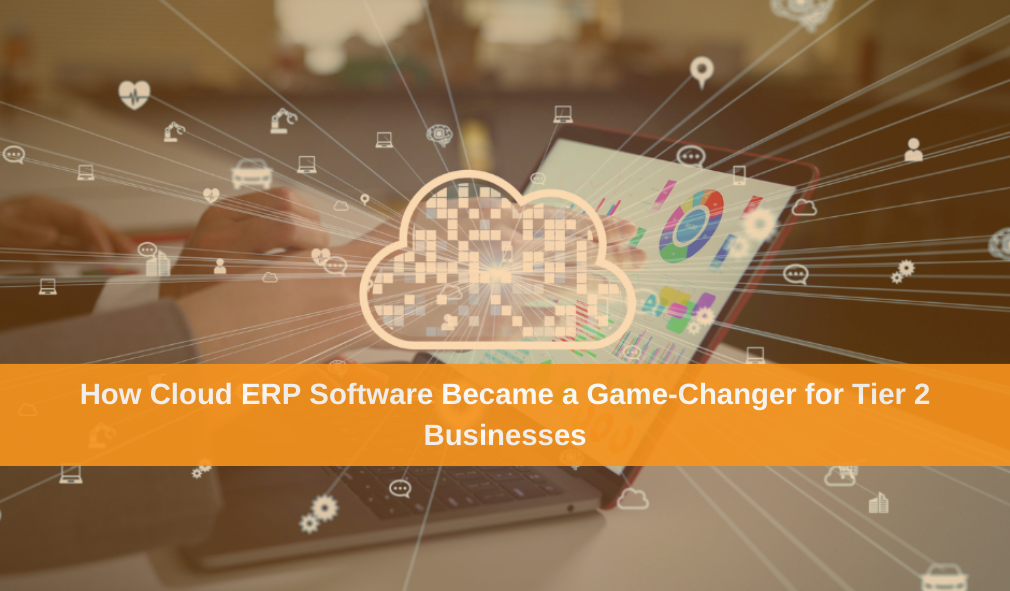Enterprise resource planning (ERP) is a software system that integrates various business functions, such as accounting, sales, human resources, and supply chain, into a single platform. ERP helps businesses streamline their processes, improve efficiency, and gain insights from data.
Traditionally, ERP systems were designed for large, global enterprises that had complex and diverse needs. These systems, known as Tier 1 ERP, were very expensive, highly customised, and difficult to implement and maintain. They required a dedicated IT team and a lot of resources to run.
However, as technology has evolved, a new category of ERP systems has emerged that caters to the needs of midsize and small businesses. These systems, known as Tier 2 ERP, are more affordable, easier to launch, and more flexible. They offer more industry-specific functionality and can be tailored to suit the requirements of each business unit or location.
One of the key factors that enabled the rise of Tier 2 ERP was the advent of cloud computing. Cloud ERP is a type of ERP system that is hosted and delivered over the internet, rather than installed on-premises. Cloud ERP offers many benefits for Tier 2 businesses, such as:
- Lower cost: Cloud ERP eliminates the need for upfront capital expenditure on hardware, software, and infrastructure. It also reduces the ongoing costs of maintenance, upgrades, and security. Cloud ERP operates on a subscription-based model, where businesses pay only for what they use.
- Faster deployment: Cloud ERP can be deployed in a matter of months, rather than years. It does not require extensive customisation or configuration, as it comes with more out-of-the-box functionality. It also allows for easy scalability, as businesses can add or remove users, modules, or features as needed.
- Greater flexibility: Cloud ERP enables businesses to adopt a two-tier ERP approach, where they use a Tier 1 ERP for their corporate functions, and a Tier 2 ERP for their subsidiaries or regions. This allows them to leverage the best of both worlds, as they can maintain a unified view of their data, while also meeting the local needs of their business units. Cloud ERP also supports integration with other cloud-based applications, such e-commerce or analytics, to enhance their capabilities and performance.
- Improved accessibility: Cloud ERP allows users to access their data and processes from anywhere, at any time, and on any device. This enables them to work remotely, collaborate with teams across locations, and make real-time decisions based on real-time data. Cloud ERP also ensures data security and backup, as the data is stored in encrypted servers and protected by firewalls and antivirus software.
Cloud ERP has transformed the way Tier 2 businesses operate, as it has given them the opportunity to compete with larger enterprises, without compromising on quality, efficiency, or innovation. Cloud ERP has also enabled them to adapt to changing market conditions, customer expectations, and regulatory requirements, by providing them with a single source of truth, real-time data, and agile processes.
If you are a Tier 2 business looking for a cloud ERP solution, you should consider the following factors:
- Your business goals and needs: You should identify your current pain points, challenges, and opportunities, and define your desired outcomes and objectives. You should also assess your existing systems, processes, and data, and determine how they can be improved or integrated with a cloud ERP system.
- Your industry and market: You should research the best practices, trends, and standards of your industry and market, and look for a cloud ERP system that offers industry-specific functionality and compliance. You should also consider the needs and preferences of your customers, suppliers, and partners, and how a cloud ERP system can help you serve them better.
- Your budget and resources: You should evaluate your available budget and resources and compare them with the costs and benefits of different cloud ERP systems. You should also factor in the total cost of ownership, which includes not only the subscription fees, but also the costs of implementation, training, support, and updates.
- Your vendor and partner: You should choose a reputable and reliable cloud ERP vendor and partner, who can provide you with a high-quality product, service, and support. You should look for a vendor and partner who have experience and expertise in your industry and market, and who can offer you a customised and flexible solution that meets your needs and goals.
Cloud ERP is no longer a luxury reserved for large enterprises. It is now a necessity for Tier 2 businesses that want to grow, innovate, and succeed in the digital age. By choosing the right cloud ERP system, you can take your business to the next level, and achieve your full potential.
Momentum Software Solutions are cloud ERP experts. We can help you evaluate your needs and advise which solution will best suit your needs.
